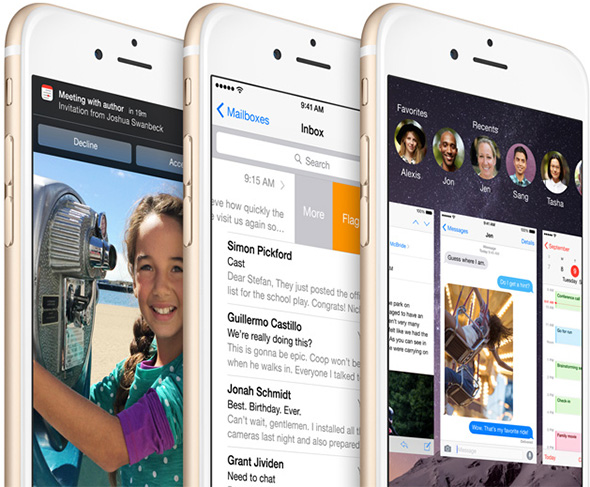Think Apple And Google Encryption Makes You Safe From Prying Eyes Of The NSA And Law Enforcement? Guess Again
Apple is making a big deal about its encryption scheme in iOS 8 and is championing itself as a purveyor of user privacy. The way Apple chief Tim Cook explains it, Apple wouldn't be able to help law enforcement infiltrate your iPhone even if it wanted to because the encryption is too strong. Google's been echoing a similar sentiment in regards to its forthcoming Android L release, which will turn on encryption by default. But are such mechanisms truly secure?
That depends on the context. Using encryption is certainly more secure than not using it, but when it comes to the U.S. government and its various agencies that have a penchant for spying on users, these encryption measures only slow down the process, they don't stop it

Jonathan Turley, a constitutional law professor at The George Washington University Law School, told Bloomberg that the privacy measures touted by Apple and Google "are wildly exaggerated" in part because law enforcement officials can still gather evidence by more traditional means. In addition, the NSA is capable of breaking or bypassing encryption.
"Citizens should not assume that these encryption devices will necessarily prevent government from intercepting communications,' Turley added. "If history is any guide, the government will find a way to penetrate these devices."
Beyond that, law enforcement can still use wiretaps and request call-details records. They can also force companies to hand over cloud data and intercept communications, and though it might all be encrypted, all that does is buy a little bit of time.
That depends on the context. Using encryption is certainly more secure than not using it, but when it comes to the U.S. government and its various agencies that have a penchant for spying on users, these encryption measures only slow down the process, they don't stop it

Jonathan Turley, a constitutional law professor at The George Washington University Law School, told Bloomberg that the privacy measures touted by Apple and Google "are wildly exaggerated" in part because law enforcement officials can still gather evidence by more traditional means. In addition, the NSA is capable of breaking or bypassing encryption.
"Citizens should not assume that these encryption devices will necessarily prevent government from intercepting communications,' Turley added. "If history is any guide, the government will find a way to penetrate these devices."
Beyond that, law enforcement can still use wiretaps and request call-details records. They can also force companies to hand over cloud data and intercept communications, and though it might all be encrypted, all that does is buy a little bit of time.

